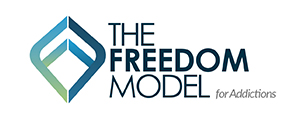Baldwin Research:
Addiction & Treatment
Research
The Definitions of Recover, Recovering, and Recovered
Baldwin researchers’ original messaging in 1989, although positive and meaningful then, may still apply, even if it is understood that alcoholism and addiction are not diseases. Indeed, based on the previous discussion, "alcoholism" is a chosen behavior to, in some manner or another, use alcohol and "addiction" simply means "habit. " You may recall that earlier in this company history, Baldwin researchers encouraged the 1990 test group to consider themselves "recovered" alcoholics, while the prevailing dogma of Alcoholics Anonymous and the drug and alcohol treatment providers contended that no one ever recovers from drug and/or alcohol use: "Once an alcoholic, always an alcoholic," but, did the raging debate of the 1990s of "recovered" versus "recovering" have merit?
If the words "recover," "recovering" and "recovered" exclusively referred to the imaginary disease condition, then the debate in the 1990’s may have been useful. Case in point, it was useful to those, in the 1990’s, that considered themselves "recovered," in that those that considered themselves "recovered" were far more successful in their efforts to not use drugs and/or alcohol than those that accepted the forever "recovering from an imaginary disease" theory.
Even though Baldwin researchers at the time had already questioned the disease theory, the existing thinking was that alcoholism and addiction were, in fact, diseases. And, even though the conventional wisdom of today still adheres to the disease theory, experts in the field of drug and alcohol use research have dismissed the disease theory as folklore and bad science. By the time the 10th Edition of the St. Jude Program was finished, Baldwin researchers had abandoned the recovered/recovering controversy. The recovered/recovering controversy simply became irrelevant, i.e. the Baldwin researchers had moved beyond the Alcoholics Anonymous’ folklore and the bad science of conventional drug and alcohol treatment programs. The Baldwin researchers had embarked on developing programs that were applicable to everyone, regardless of their intentions, i.e. whether they wanted to abstain from drug and/or alcohol use, or moderate their drug and/or alcohol use, or continue their excessive drug and/or alcohol use behaviors. While most people would judge this third option inherently bad, many people who are perceived to be successful (and certainly some who are perceived to be unsuccessful) excessively use drugs and/or alcohol all their lives and appear to be happy.


